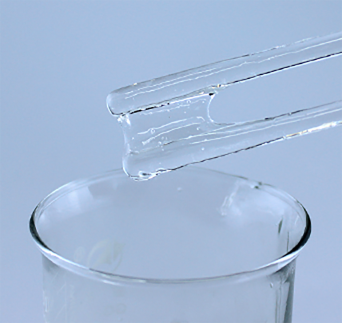
Dec . 11, 2024 10:56 Back to list
HPMC Solubility Characteristics in Cold Water for Pharmaceutical Applications
Exploring the Solubility of HPMC in Cold Water
Hydroxypropyl methylcellulose (HPMC) is a versatile cellulose-derived polymer widely used in various industries, particularly in pharmaceuticals, food, and construction. Its unique properties make it an essential ingredient for numerous applications. One of the significant characteristics of HPMC is its solubility in cold water, which is crucial for many of its applications. This article explores the solubility of HPMC in cold water, its implications, and factors influencing this property.
Understanding HPMC
HPMC is a non-ionic, water-soluble polymer that is produced by modifying cellulose. The structure of HPMC consists of a backbone of cellulose with hydroxypropyl and methyl groups attached. This modification enhances its solubility in water and increases its viscosity when dissolved. HPMC is available in various grades, which differ in viscosity, degree of substitution, and solubility characteristics, making it adaptable for specific needs.
Solubility in Cold Water
HPMC is known for its ability to dissolve in cold water, which distinguishes it from many other cellulose derivatives that often require heat to achieve solubility. When HPMC is mixed with cold water, it forms a gel-like solution, allowing for easy incorporation into formulations without the need for additional heating. This property is particularly beneficial in settings where heat-sensitive ingredients are present, such as in some pharmaceutical and food applications.
The solubility of HPMC in cold water depends on several factors, including the degree of substitution, viscosity grade, and concentration of the polymer in solution. Generally, HPMC with a higher degree of hydroxypropyl substitution dissolves more readily in cold water. This characteristic is essential for formulators who need a quick solubilization process without compromising the integrity of heat-sensitive compounds.
Practical Implications
hpmc solubility in cold water

The ability of HPMC to dissolve in cold water has significant implications across various fields. In the pharmaceutical industry, it is often used as a binder in tablet formulations, as well as a thickening agent in liquid medications. The solubility of HPMC in cold water allows for a uniform distribution of active ingredients, which is crucial for consistent dosing and efficacy.
In the food sector, HPMC serves as a stabilizer, emulsifier, and thickening agent, particularly in products that require a smooth texture, such as sauces and dressings. Its solubility in cold water enables manufacturers to achieve the desired viscosity without the risk of degrading sensitive flavors or nutrients through heat exposure.
In construction, HPMC is used in cement-based products where it acts as a water-retaining agent, improving the workability of the mix and enhancing adhesion properties. The cold water solubility of HPMC ensures that it can be incorporated efficiently into construction materials without alteration of their performance qualities.
Factors Influencing Solubility
While HPMC is generally soluble in cold water, several factors can influence this property. The molecular weight of HPMC plays a crucial role; higher molecular weight HPMC can lead to increased viscosity and may require more time to achieve complete solubility. Additionally, the presence of other substances in the solution, such as salts or polymers, may also affect HPMC's solubility and overall performance.
Temperature is another critical factor to consider. Although HPMC can dissolve in cold water, variations in temperature can influence its solubility rate and viscosity. Manufacturers often conduct solubility tests under different conditions to determine the optimal parameters for their specific applications.
Conclusion
The solubility of HPMC in cold water is a valuable characteristic that expands its usefulness across multiple industries. From pharmaceuticals to food technology and construction, the ability to incorporate HPMC without the need for heating is a significant advantage. As researchers continue to explore the properties of HPMC and optimize its formulations, its applications are likely to expand, making it an even more critical component in various sectors. Understanding and harnessing the solubility of HPMC is essential for formulators and manufacturers seeking to innovate and improve product performance.
-
Versatile Hpmc Uses in Different Industries
NewsJun.19,2025
-
Redispersible Powder's Role in Enhancing Durability of Construction Products
NewsJun.19,2025
-
Hydroxyethyl Cellulose Applications Driving Green Industrial Processes
NewsJun.19,2025
-
Exploring Different Redispersible Polymer Powder
NewsJun.19,2025
-
Choosing the Right Mortar Bonding Agent
NewsJun.19,2025
-
Applications and Significance of China Hpmc in Modern Industries
NewsJun.19,2025







